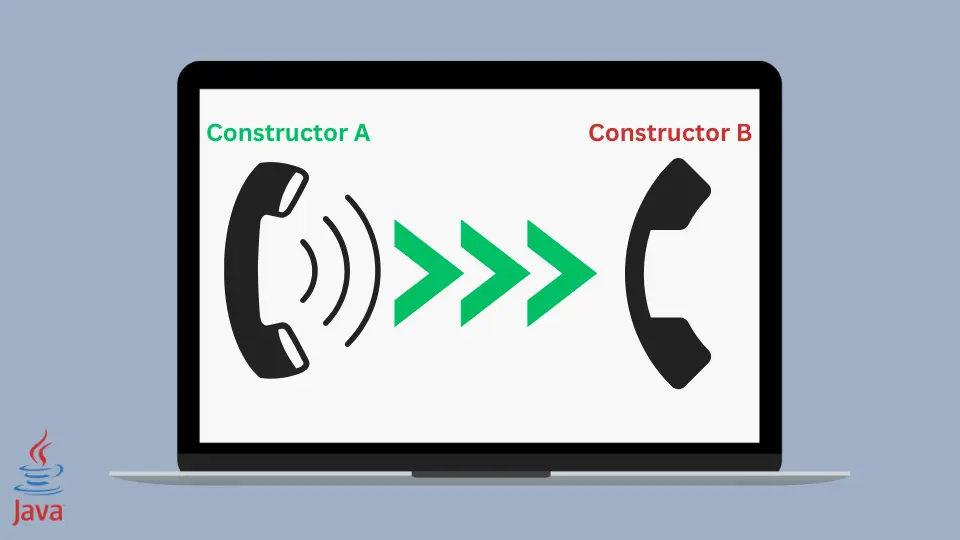How to Call Another Constructor in Java
- Call One Constructor From Another Within the Same Class in Java
- Call One Constructor From Another From the Base Class in Java

In Java, the sequence of invoking constructors upon initialization of the object is called constructor chaining. It is used when we want to invoke one constructor after another by using one instance.
Call One Constructor From Another Within the Same Class in Java
When we want to call one constructor from another constructor within the same class, we use the this keyword. An expression that uses the this keyword must be the first line of the constructor. The order doesn’t matter in the constructor chaining. It must have at least one constructor that doesn’t use the this keyword.
In the below example, we have a class Test that has 3 constructors. One is the default one without any parameters, while the other two are parameterized. In the main method, we instantiate the class object with the new keyword without any parameters passed.
It invokes the default constructor Test() which redirects the call to the parameterized constructor Test(String name) using this("Steve"). The constructor Test(String name) further redirects the call to the other parameterized constructor Test(int age, String place) using this(30,"Texas").
The statements inside the Test(int age, String place) are executed first. After that, the rest of the Test(String name) constructor’s statements are executed. Finally, the default constructor’s remaining statement is executed, and the object is initialized successfully.
public class Test {
Test() {
this("Steve");
System.out.println("Default Constructor");
}
Test(String name) {
this(30, "Texas");
System.out.println("Name - " + name);
}
Test(int age, String place) {
System.out.println("Age- " + age + ", place- " + place);
}
public static void main(String[] args) {
Test test = new Test();
}
}
Output:
Age- 30, place- Texas
Name - Steve
Default Constructor
Call One Constructor From Another From the Base Class in Java
When there is more than one class with the inheritance relationship, we need to use the super keyword to call the parent class constructor from the child class. Unlike the this keyword, the JVM automatically puts the super keyword.
The base class is the parent class that is extended by the derived class. The main method in which we instantiate the class object invokes the same class’s default constructor, which further redirects the call to the child class’s parameterized constructor using this("Adam").
super(name) invokes the parameterized constructor Base(String name) of the Base class. The default constructor of the Base class is invoked using this(). The class variable is also initialized here using this.name = name.
The code within the Base class default constructor executes. Later the statements inside the parameterized constructor Base(String name) executes. Finally, the remaining statement inside the parameterized constructor of the Derived class is executed.
class Base {
String name;
Base() {
System.out.println("Default Constructor Base Class");
}
Base(String name) {
this();
this.name = name;
System.out.println("Parameterized Constructor Base Class called:- " + name);
}
}
class Derived extends Base {
Derived() {
this("Adam");
}
Derived(String name) {
super(name);
System.out.println("Parameterized Constructor Derived Class called: " + name);
}
public static void main(String[] args) {
Derived derived = new Derived();
}
}
Output:
Default Constructor Base Class
Parameterized Constructor Base Class called:- Adam
Parameterized Constructor Derived Class called: Adam
Rupam Saini is an android developer, who also works sometimes as a web developer., He likes to read books and write about various things.
LinkedIn